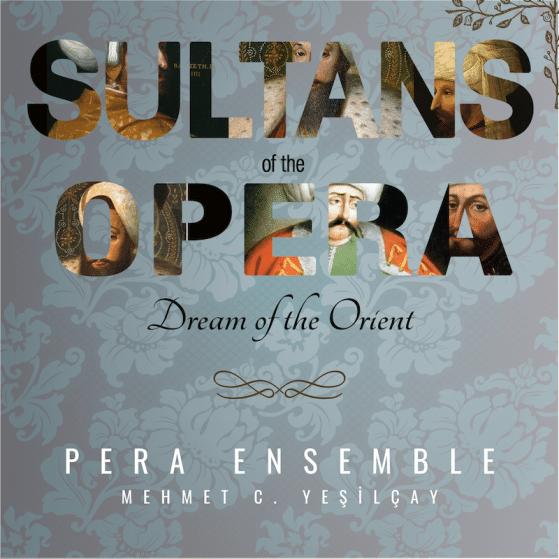WELCOME TO THE WORLD OF THE PERA ENSEMBLE
“A beguiling essence born of resounding gemstones” (Gmünder Tagespost)
The Pera Ensemble, lauded by critics as “a discerning blend of flavors, a fertile and prolific interweaving of soundscapes” (Mitteldeutsche Zeitung), is named after a district in İstanbul, which for the last 2000 years has stood as crucible of myriad cultures and religions.
Hardly any other ensemble is able to switch more effortlessly and multi-facetedly between supposedly different (musical) cultures and at the same time unite them musically, tonally and dramaturgically as the Pera Ensemble. In its programmes, the ensemble imaginatively and inspiringly combines the compositional art of Central European Renaissance and Baroque music with the heyday of Ottoman musical tradition, searches for hidden treasures, discovers and reconstructs what has long been forgotten, lends a new face to the familiar ... "a sophisticated mixture of flavours, a reciprocal interpenetration and enrichment of sound worlds" is how the Mitteldeutsche Zeitung describes it. This always presupposes a well-founded understanding of musicology, a precise knowledge of styles and a high level of instrumental and vocal mastery of both musical traditions, and perhaps it is precisely here that the Pera Ensemble's recipe for success lies. In this west-eastern baroque ensemble, internationally renowned specialists in historically informed performance practice from Europe meet the elite of classical Turkish art music. The Pera Ensemble has taken as its model the Istanbul district of the same name, "Pera", whose inhabitants of diverse origins and religions have lived in creative exchange and harmony with each other since ancient times - and continue to do so today. A cultural melting pot that could not be more exciting and inspiring!
The historical figure of Ali Ufki is also emblematic of the Pera Ensemble's central musical and self-image. He was born in 1610 as a Polish Huguenot named Wojciech Bobowski and initially trained as a "Western" composer and church musician before he came to the court of the Ottoman Sultan in the turmoil of his time. There he quickly familiarised himself with classical Ottoman art music, converted to Islam and wrote down the works of his new homeland. However, his copy of the so-called "Geneva Psalter", a Protestant collection of church hymns whose Christian melodies were subsequently to flow unnoticed into the repertoire of all three monotheistic world religions of Constantinople, thus making Ali Ufki the (musical) link between Orient and Occident. And so the Pera Ensemble, with its filigree sound worlds, quickly makes you forget that European baroque violin, viola, theorbo, harpsichord and viola da gamba are artfully making music here with Ottoman ney, kemençe, kanun and ud. A musical cosmos and bridge-building in which Western notation and harmonics merge with Eastern microtonality and improvisational joy, giving rise to one thing above all: "Emotions! And this in an almost indescribable, moving way" (Opernnetz).8 The brilliantly soulful falsetto of the Romanian countertenor and shooting star of the early music scene Valer Barna-Sabadus or the powerful lyrical soprano of the Italian baroque specialist Francesca Lombardi Mazzulli (1st prize "Handel Singing Competition London") unfolds almost unearthly above all this. The Pera Ensemble also has an intensive collaboration with the English countertenor Jake Arditti (son of the famous string quartet primarius of the same name) and the exceptional falsetto Filippio Mineccia from Florence. But also the young mezzo-soprano Laila Salome Fischer and the soprano Marie Sophie Pollak are an integral part of many projects of the Pera Ensemble. On the Turkish side, the international soloist line-up is completed by the singing legend Ahmet Özhan, who in his home country - even officially appointed Turkish "state artist" in 1998 - is undisputedly one of the best-known and most popular personalities of the classical Turkish art music scene.
Sinem Yeşilçay
Managing director
Mehmet C. Yeşilçay
musical direction
Management & Co-Production Ambassadors of Culture
A. Çağrı Beşli, A. Mahsum Melikoğlu
Sina Production
İstanbul – Türkiye
[email protected]
+90 534-776-07-75

